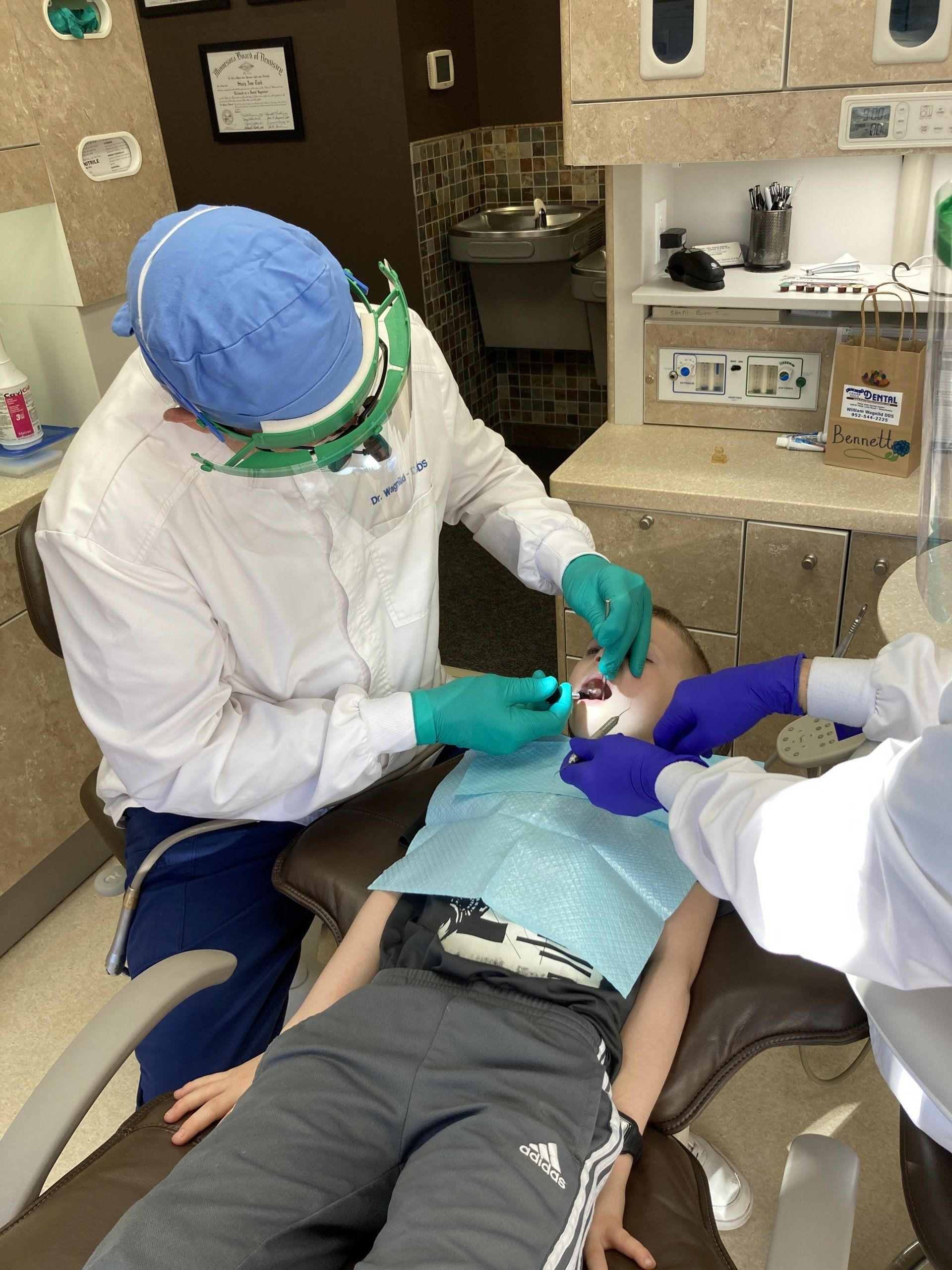Children's Dental Care & Services
Promoting Good Oral Health & Habits in Children
It is common for parents to wonder when they should start bringing their child or children to see a dentist for the first time. According to the American Dental Association, the American Academy of Pediatrics, and the American Academy of Pediatric Dentistry, the ideal time to bring your child for their first exam with a dentist is within 6 months of the first tooth's eruption or by the child's first birthday. This may come as a surprise to some and seem early. This is an updated standard and is earlier than previously recommended. In addition to your child's regular routine visits when their teeth are polished and a fluoride varnish applied, sealants placed on their permanent molars give additional protection against cavities. Our picture is a great demonstration of how easy it is

Preventive Dental Care in Children
Preventative Dental Care in Children is essential because 90% of cavities are preventable with proper oral hygiene, regular dental care, and good choices about nutrition. There can be bacterial build-up in a child's mouth that harms teeth even before the teeth erupt. It is crucial to start hygiene skills early to prevent problems before they can grow into more significant issues.
Regular Visits to the dentist and the dental office help your child become familiar with the surroundings and the overall experience of going to the dentist. There are several things that parents can do to make the first and subsequent appointments go smoothly. Remember, your attitude dramatically influences your child's attitude. Always be positive, even if you have had negative experiences. It is important to keep negative comments out of your child's experience. This may be difficult for parents who might have very real fears. However, your child will greatly benefit if they are not scared prior to their visit. Parents who are calm and relaxed help their children be calm and relaxed in this new situation.
What to expect on Your Childs First Dental Visit
At your infant or child's first visit, especially when they are around 1 year of age, it is common for them to cry. Remember, they cry for many reasons. It is okay and perfectly normal. This is normal behavior and often more of a problem for the parent or caregiver. They are not crying because something hurts. Often young children cry in a new environment, a new situation, and a new experience. We will have the parent sit in a chair and have them hold their child. Sometimes, we might not even have the parent sit in the dental chair, rather on the dentist's chair for us to do the exam. We can see a lot when a child is crying with their mouth wide open.
These earlier appointments are meant to discover and prevent problems from developing. Dental caries in children is the most common chronic childhood disease found in the United States.
By age 2 or 3, about 19% of children have had at least one tooth with a cavity, often not treated
By Kindergarten, over 50% or about half have had a cavity or a filling in their mouth.
The initial visit is designed to:
- prevent problems from developing later in life
- develop some familiarity with the dentist and the office before a problem happens
- make the child more comfortable if a problem develops
- develop good oral health care habits
- demonstrate proper oral hygiene care
- council and educate parents on proper nutrition, and oral care
- educate parents about how children's teeth develop and change










